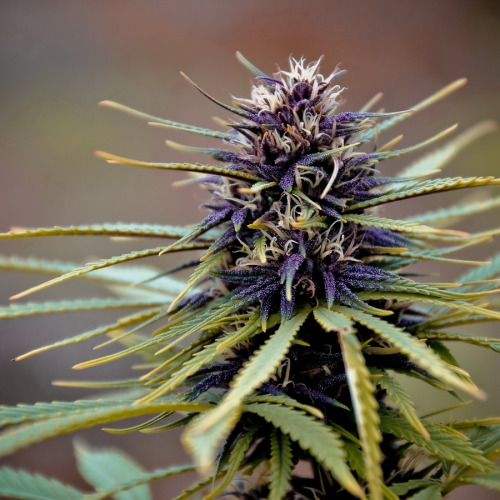Why Driving While High Laws Are Very Troubling

By:
As the first state in the U.S. to legalize recreational marijuana, Colorado has been something of a testing ground for various drug policies, including how to treat people who are suspected of driving under the influence of cannabis. And recently, state prosecutors have found that jurors are treating marijuana users differently than those accused of drinking and driving.
RELATED: Colorado has Had Record Lows in Traffic Fatalities Since Marijuana was Legalized
Though Colorado has set a legal limit on the amount of THC (the main psychoactive component of marijuana) that a person can have in their blood while driving, the law allows for some interpretation when it comes to determining if that person was "impaired." The effect has been a general reluctance to prosecute marijuana users, CBS Denver reported.
 Tumblr - tumblr.com
Tumblr - tumblr.com
Take a recent case, for example.
Melanie Brinegar, a medical marijuana patient, was pulled over in June for driving with an expired license. The Westminster, Colorado, police officer then suspected that she had been smoking pot. When questioned, Brinegar denied that she was high but acknowledged that she had been "medicating" earlier that day. A blood test showed that she was over the legal limit (5 nanograms of THC per millitter of blood) by nearly four times—yet a jury acquitted her.
The defendant argued that she "drives better" and is "able to focus" after using cannabis, a claim that is regularly echoed by advocates and users alike. And since Brinegar wasn't pulled over for swerving or driving erratically, the jury decided to drop the DUI charge. That's becoming a theme in marijuana enforcement in Colorado, prosecutors say.
"You are putting lives in danger," Tom Raynes, a former prosecutor who heads the Colorado District Attorneys' Council said in response to the ruling. "I want the message to be understood. It's about driving while under the influence of drugs. It's not about recreational or medical; it's about being impaired when you drive."
The science of driving under the influence of marijuana.
It's worth pointing out here that the science behind legal THC blood limits is a contentious matter. Many argue that measurements and instruments used to determine if someone is too high to drive are not as sophisticated as those used for people suspected of driving under the influence of alcohol.
"We don't have a consensus as to what levels of THC are consistently correlated with behavioral impairment," Paul Armentano, deputy director of NORML, told Business Insider. "Marijuana policy has never been driven by science in this country."
And while there are recent studies showing that people who drive while under the influence of both marijuana and alcohol perform worse on driving tests than those who only consume alcohol, there's limited evidence that smoking pot alone affects every user in the same way. Additionally, because THC metabolizes differently than alcohol—with traces of THC present in blood, urine, and hair for significantly longer than with alcohol—testing an individual's highness at any given moment is itself a questionable practice.
"Everyone wants a Breathalyzer which works for alcohol because alcohol is metabolized in the lungs," Andrew Spurgin, postdoctoral research fellow at the University of Iowa College of Pharmacy who co-authored a study on driving under the influence of cannabis, said. "But for cannabis this isn't as simple due to THC's metabolic and chemical properties."
